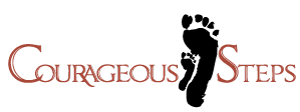ORGL-516: Organization Development
Expected Competencies
Understanding OD Theory and Praxis: Demonstrate comprehension of core Organizational Development (OD) theories, models, and consulting practices aimed at improving individual, team, and organizational effectiveness.
Strategic Intervention Design: Ability to select and apply appropriate OD interventions—team building, strategic planning, communication strategies, system-wide change models—tailored to organizational contexts.
Change Management Proficiency: Mastery of guiding organizational change using frameworks like Kotter’s 8-step model and system-wide thinking; applying theory to real-life change scenarios.
Cultural and Systems Awareness: Analyze the influence of social systems, dominant cultural narratives, and organizational positioning on behavior and decision-making.
Scholar-Practitioner Application: Integrate OD theory with lived experience and practitioner insight to create meaningful change in real-world organizational systems.
Achieved Competencies
Applied Change Theory: Demonstrated ability to use Kotter’s change model in navigating the transition from federally funded to private pediatric therapy, integrating roles of parent, advocate, and systems thinker.
Systemic Analysis: Developed insights into how dominant cultural narratives and regional social systems impact care delivery and parent inclusion, particularly in NICU and early intervention contexts.
Consulting Mindset: Recognized the dual role of parent as internal consultant and advocate, balancing formal diagnosis processes with informal system navigation.
Organizational Silence and Dissent: Developed a critical lens to examine how silence functions as dissent in hierarchical organizations and how sensemaking contributes to decision-making avoidance.
Intervention Planning: Proposed system-wide interventions for prematurity awareness, integrating Argyris' and Sales’ OD frameworks to explore cultural learning models.
Applied Competencies
Change Management in Pediatric Systems
In Change Management from Federally Serviced Therapy to Private Therapy, I applied Kotter’s 8-Step Change Model to advocate for my son’s unmet needs in early intervention. I transitioned from a passive service recipient to an empowered change agent by creating urgency, building a vision, and mobilizing a support team for individualized care.Critical Organizational Analysis
In Silence as a Form of Organizational Dissent, I critically analyzed how employee silence—often framed as submission—is instead a form of resistance. Using Bisel and Arterburn’s research, I explored how organizational hierarchy, identity, and fear shape communication and dissent within formal workplace structures.System-Wide OD Interventions for Equity
In System-wide Intervention Applications of Prematurity Awareness, I proposed a culturally informed intervention strategy in a resistant community. Drawing from Sales’ Four-Player Model and Argyris’ double-loop learning theory, I argued for inclusion practices and culture change that support NICU families navigating stigma and social invisibility.
Artifact Inclusions
Change Management from Federally Serviced Therapy to Private Therapy
This paper applies Kotter’s framework to a real-life transition from public to private therapy services for a child with developmental delays, illustrating how personal leadership and OD principles can reshape family systems and care delivery.System-Wide Intervention Applications of Prematurity Awareness
A systems analysis paper using Gallos, Sales, and Argyris to challenge dominant cultural narratives and advocate for inclusivity and double-loop learning within a high-performing community that stigmatizes NICU families.
References
Argyris, C. (2006). The healthy organization. In J. V. Gallos (Ed.), Organization Development – a Jossey-Bass Reader (pp. 267–285). San Francisco, CA: Jossey-Bass.
Bisel, R. S., & Arterburn, E. N. (2012). Making sense of organizational members’ silence: A sensemaking-resource model. Communication Research Reports, 29(3), 217–226.
Bruder, M. B. (2010). Early childhood intervention: A promise to children and families for their future. Exceptional Children, 76(3), 339–355.
Distelhorst, D. J. (n.d.). Module 2: Change management principles. In An OD practitioner’s tool kit: Twenty years of accumulated OD wisdom & methodologies.
Kotter, J. P. (2006). Leading change: Why transformation efforts fail. In J. V. Gallos (Ed.), Organization Development – a Jossey-Bass Reader (pp. 239–251). San Francisco, CA: Jossey-Bass.
Sales, M. J. (2006). Understanding the power of position. In J. V. Gallos (Ed.), Organization Development – a Jossey-Bass Reader (pp. 322–343). San Francisco, CA: Jossey-Bass.
Weick, K. E. (1995). Sensemaking in organizations. Thousand Oaks, CA: Sage.
Key Words
Organizational development, change management, Kotter, systems thinking, cultural interventions, OD consulting, parent advocacy, organizational silence, sensemaking, hierarchy, organizational communication, NICU systems, equity in care, OD frameworks, intervention planning, scholar-practitioner, double-loop learning.

